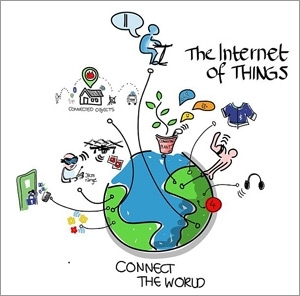Commentary
SEO Experts More In Demand In The Internet Of Things Age
- by Laurie Sullivan , Staff Writer @lauriesullivan, October 10, 2014
 Search engine optimization gurus, next year's your year. Gartner Research predicts that by 2017, half of the solutions created to support the Internet of Things will originate in startup. Not only
will these companies with niche applications require SEO experts to optimize content -- they will also optimize hardware devices so software or operating systems on smartphones can identify them.
Search engine optimization gurus, next year's your year. Gartner Research predicts that by 2017, half of the solutions created to support the Internet of Things will originate in startup. Not only
will these companies with niche applications require SEO experts to optimize content -- they will also optimize hardware devices so software or operating systems on smartphones can identify them.
Gartner suggests that the IoT will lead to the creation and funding of a large number of startups. This will lead to creative solutions and a wide range of products -- many of which will fail in the market -- but in the long run the process will lead to growth in new areas.
Marketing departments will need a new mix of skills. Search marketers will need to learn how to identify hardware as well as pieces of content that live on the Internet. Skills will range from an expertise in mobile to user experience and data science to analyze trends.
Peter Sondergaard, Gartner senior vice president and global head of research, in the opening keynote said that since 2013, about 650 million new physical objects have come online. 3D printers became a billion-dollar market and 10% of cars became connected. Enterprises will have more than half a million IP addressable objects by 2020.
The Internet of Things signals a shift in the relationship between the Internet and humans. At the Gartner Symposium/ITxpo conference this week, Daryl Plummer, vice president and Gartner Fellow, shared the top 10 predictions for technology trends that will impact businesses and consumers. By year-end 2015, mobile digital assistants will have taken on tactical mundane processes such as filling out names, addresses and credit card information. By year-end 2016, mobile digital assistants will perform more than $2 billion in online shopping, exclusively.
A renewed interest in mobile payment will take hold in 2015, along with a significant increase in mobile commerce attributable, in part, to Apple Pay and similar efforts by competitors, such as Google increasing efforts to drive adoption of its NFC-enabled Google Wallet. By 2017, U.S. customers' mobile engagement behavior will drive mobile commerce revenue in the U.S. to 50% of U.S. digital commerce revenue.
By 2015, more than half of traditional consumer products will have native digital extensions. By 2017, consumer experience innovations will control half of consumer product investments.
By 2016, an increasing number of retailers will focus on discount offers and promotions based on customer location and the length of time in-store, but by 2020, retail businesses that use targeted messaging in combination with internal positioning systems (IPS) will see a 5% increase in sales.



